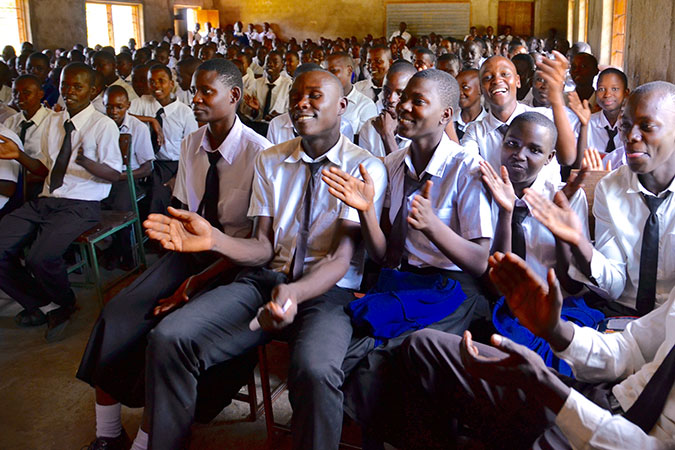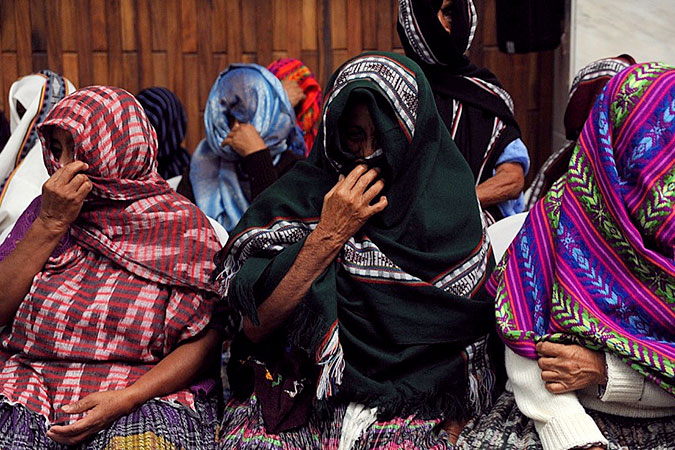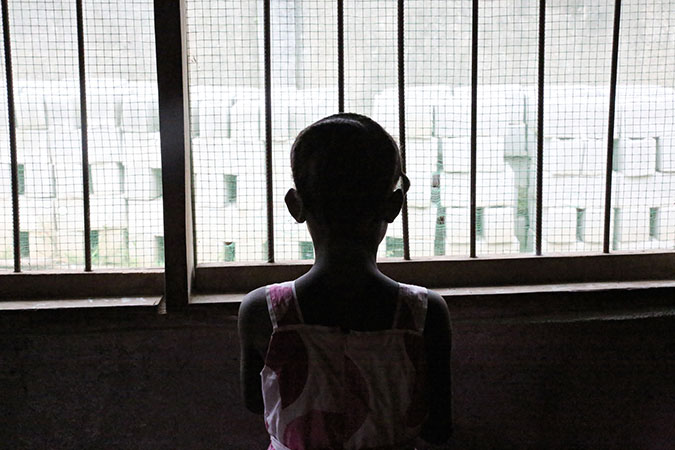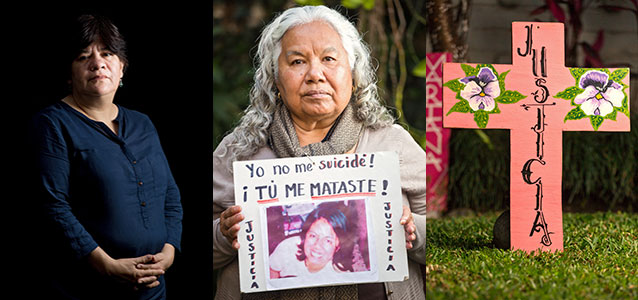Transform
Safe in Serengeti: Young women and girls seek refuge from female genital mutilation in Mara, Tanzania

“Many girls flee their homes with nothing more than the clothes they were wearing,” says Apaisaria Kiwori, as she instructs the designated cooks to stir the pots of red kidney beans and rice for dinner. Kiwori is the head matron of the only safe house in Mugumu, Serengeti, in the Mara region of north-western Tanzania that takes in young girls escaping child marriage, domestic abuse and sexual assault; but primarily girls who are escaping female genital mutilation (FGM).
The UN Trust Fund to End Violence against Women (managed by UN Women on behalf of the UN system) has supported Amref Health Tanzania to launch an awareness raising and advocacy programme here in January 2016, aiming to end FGM practices in the region. According to the Tanzania Demographic Health Survey 2015, the FGM prevalence rate in Mara is 32 per cent, more than three times the national average.
“Every two years, girls as young as age four are registered with local clan leaders to undergo the cut,” explains Godfrey Matumu, Project Manager for Amref Health Africa in Mara. “In December 2016, 5,621 girls of the Kurya tribe were registered, and 41 per cent were cut.” The numbers seem daunting, but Matumu assures us that the trainings and awareness raising sessions have made significant progress: “In comparison, during the last high season in December 2014, 14,122 girls were registered and it is highly likely that all of them were cut.” Matumu and his team attribute the 60 per cent drop in the numbers to greater understanding of the health consequences of FGM; and increased awareness and support of village elders and local elders to stop the practice.
Back at the safe house, it is a little after sundown and seventeen-year old Elizabeth Thomas Mniko has just returned from her extra classes at school. Mniko is preparing for the upcoming national exams for senior secondary students—something she didn’t think would have been possible three years ago when her father registered her to undergo the cut.
Unable to change her father’s mind, Mniko sought refuge at the safe house. “It takes great courage to leave your entire world behind. Some of the younger girls here didn’t even know that it would be the last time they see their friends and families. They left thinking they could go back. But the families have rejected them,” she says. Read more►
More stories
Sepur Zarco: In pursuit of truth, justice, and now reparations
Thirty-four years after the rape and slavery of indigenous Q’eqchi’ women of Sepur Zarco, a Guatemalan court convicted former military officers of crimes against humanity. It was the first time that a national court anywhere in the world had ruled on charges of sexual slavery during an armed conflict—a crime under international law. The court also ruled to grant reparations to the survivors and their communities. For justice to work, and for peace to sustain, women must be able to define and experience justice. Read more►
Reversing the tide of rising violence against women in Liberia
Liberia is grappling with rising incidences of sexual and gender-based violence. Children as young as six are being raped, with devastating impact on their health and wellbeing. Little Decontee from Nimba County was returning from the farm when a 22-year old male relative raped her. She is among a minority of survivors whose rapist was eventually prosecuted and sentenced to prison. Under Liberia’s Rape Law of 2005, statutory rape or sexual intercourse with minors is a non-bailable offence. However, a proposed amendment that is now with the House of Representatives, could make statutory rape a bailable offence. UN Women, together with partners is advocating for stronger laws and engaging community leaders to prevent violence against women and girls. Read more►
The long road to justice, prosecuting femicide in Mexico
In Mexico, at least seven women were victims of gender-related killings every day in 2016. The killings continue, although there are comprehensive laws in the books, because of prevailing impunity and the lack of effective implementation. It took Irinea Buendía six years to get justice for her daughter’s murder, but her pursuit of justice led to a historic precedent in prosecuting femicide in Mexico. UN Women is supporting government institutions and civil society organizations, so that together they can raise awareness and end impunity towards crimes against women and girls. Read more►


